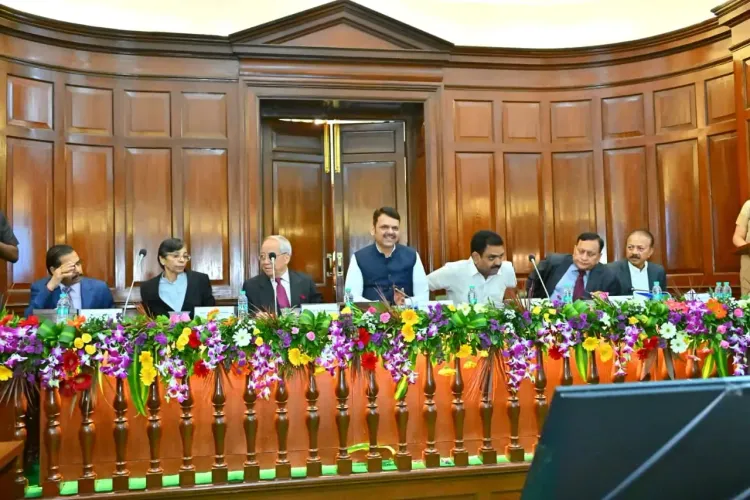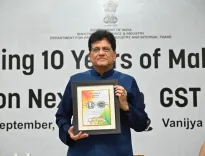Is Zero Tolerance Essential to Combat Drug-Related Crimes?

Synopsis
Key Takeaways
- Zero-tolerance policy adopted to combat drug-related crimes.
- Importance of modern technology in law enforcement.
- Creation of a cybersecurity lab to expedite crime resolution.
- Unity in police and society is vital for sustainable progress.
- Economic dependency on the service sector is significant.
Mumbai, Sep 20 (NationPress) In response to the surge in drug-related offenses, the Maharashtra government, under the leadership of Chief Minister Devendra Fadnavis, has implemented a zero-tolerance policy to combat this growing issue.
"For our nation to ascend to superpower status, we must effectively enforce law and order. As drug-related crimes pose significant challenges for law enforcement, a zero-tolerance approach has become imperative. Embracing modern technology is crucial for addressing crimes, particularly in the cyber realm," stated Chief Minister Devendra Fadnavis during his address at the conference titled 'Reimagining the Police Force for India's Economic Development,' which celebrated the 10th Foundation Day of the Indian Police Foundation.
CM Fadnavis emphasized, "Unity within the police force and society is vital. This collective effort diminishes negativity, allowing both the state and nation to progress sustainably."
"Over the years, the nature of crimes has evolved, and we can only achieve progress by integrating contemporary technology with the enduring values of the past. Accordingly, a new police organizational framework was established in 2023, alongside the launch of a cutting-edge cybersecurity laboratory aimed at expediting crime resolution. Other nations have expressed interest in replicating our state’s lab. With the assistance of AI, complex criminal cases are being resolved more swiftly," he added.
He pointed out that the Constitution outlines checks and balances within the police system, and numerous officers have made significant strides utilizing existing laws.
Additionally, he mentioned that since the IPC, CrPC, and Indian Evidence Act are remnants of British colonial law, necessary amendments are being undertaken to align them with democratic principles. The adoption of new technology and digital platforms is essential for enhancing the effectiveness of police operations.
"Crime is increasingly facilitated through social media and online platforms, necessitating the use of advanced technologies and methodologies such as data analytics, machine learning, and digital tracking for prompt responses to online offenses. Agriculture has long been the backbone of our economy, and even today, the agricultural sector remains crucial. However, as times change, the economy is increasingly reliant on the service sector, which accounts for 55 to 65 percent of economic activity. Understanding the evolving landscape of the service sector is imperative," the Chief Minister remarked.
CM Fadnavis reiterated that, alongside modernizing the police force, it is essential to uphold sustainable values.
He expressed pride in the high standards maintained by the Maharashtra Police and Mumbai Police.
"It is commendable that the police are engaging in discussions about India's economic development today, and the collaborative sessions conducted during this event will be crucial in facilitating further positive transformations within the police force. The government will seriously consider the new initiatives proposed during these discussions," he assured.
The conference also featured discussions on police governance and safeguarding digital borders, emphasizing the necessity of strategic police-industry partnerships to foster stability in the investment ecosystem and global landscape.





